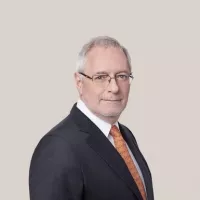- within Insurance topic(s)
- with Senior Company Executives, HR and Finance and Tax Executives
- with readers working within the Business & Consumer Services, Insurance and Healthcare industries
Prime Minister Trudeau and South Korean President Yoon Suk Yeol recently signed a Memorandum of Understanding on Cooperation in Critical Mineral Supply Chains, the Clean Energy Transition and Energy Security (the "MOU"), signaling a partnership between the two countries to continue their bilateral cooperation and elevating their participation in the critical mineral supply chain.
What Is the Content of the MOU?
The preamble to the MOU refers to the two countries' mutual commitment to achieve net-zero emissions by 2050, and enhance their collaboration in advancing the technologies required for the clean energy transition and their mutual energy security.
The MOU states that both countries intend to position themselves as globally competitive players in the critical minerals supply chain and the battery and electric vehicles (EVs) value chains in ways that support their collective prosperity and security, while leveraging their respective expertise in environmental, social and governance frameworks.
What Is Its Purpose?
The MOU's purpose is to strengthen the partnership between the two countries in order to "secure, resilient, and mutually beneficial critical mineral supply and value chains, a sustainable energy transition, and strengthening energy security."
Identified Areas of Cooperation
The MOU refers to the following areas of cooperation:
- trade and investment across critical mineral supply chains to support the integration of advanced manufacturing, midstream, and upstream segments of the value chain in both countries;
- energy transition and energy security;
- information exchanges related to critical mineral processing and recycling, as well as securing and diversifying supply chains;
- clean fuels such as hydrogen, its derivatives, and enabling technologies;
- carbon capture, utilization and storage, and carbon dioxide removal technologies; and
- manufacturing, in areas such as clean energy technologies, advanced materials, zero-emission vehicles, batteries, semiconductors, etc.
What Does Cooperation Entail?
The MOU refers to various forms of cooperation, including:
- identifying and facilitating technology, trade and investment;
- joint workshops, seminars, and symposia;
- business-to-business and government-to-government missions;
- developing networks between private and public sectors;
- convening new working groups related to the Areas of Cooperation identified above; and
- hosting companies, research institutions, financial organizations and other relevant groups to achieve to in an effort to facilitate Areas of Cooperation.
The MOU is a preliminary step signaling a deeper partnership between South Korea and Canada in finding synergies in the critical mineral space. It contemplates that the two countries will develop an action plan to implement the MOU.
Key Takeaways
Canada and South Korea are natural partners in the production of electric vehicles and batteries. Canada has the critical minerals that South Korea needs, such as graphite, nickel, cobalt, copper, lithium; South Korea has a highly developed manufacturing sector in automobiles, electronics, telecommunications, chemicals, and semiconductors. These synergies, as well as the history of cooperation in business between the two countries, make the two countries natural partners. The MOU should bring Canada and South Korea even closer in the years ahead, particularly with respect to EVs.
Click here to read the full text of the MOU.
The content of this article is intended to provide a general guide to the subject matter. Specialist advice should be sought about your specific circumstances.





